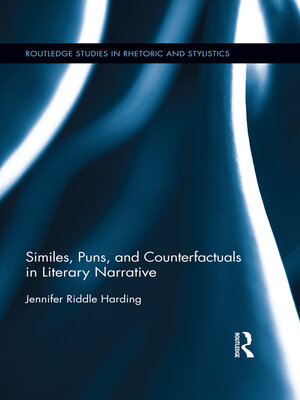Similes, Puns and Counterfactuals in Literary Narrative
ebook ∣ Routledge Studies in Rhetoric and Stylistics
By Jennifer Riddle Harding

Sign up to save your library
With an OverDrive account, you can save your favorite libraries for at-a-glance information about availability. Find out more about OverDrive accounts.
Find this title in Libby, the library reading app by OverDrive.



Search for a digital library with this title
Title found at these libraries:
| Library Name | Distance |
|---|---|
| Loading... |
In this study, Jennifer Riddle Harding presents a cognitive analysis of three figures of speech that have readily identifiable forms: similes, puns, and counterfactuals. Harding argues that when deployed in literary narrative, these forms have narrative functions—such as the depiction of conscious experiences, allegorical meanings, and alternative plots—uniquely developed by these more visible figures of speech. Metaphors, by contrast, are often "invisible" in the formal structure of a text. With a solid cognitive grounding, Harding's approach emphasizes the relationship between figurative forms and narrative effects. Harding demonstrates the literary functions of previously neglected figures of speech, and the potential for a unified approach to a topic that crosses cognitive disciplines. Her work has implications for the rhetorical approach to figures of speech, for cognitive disciplines, and for the studies of literature, rhetoric, and narrative.







